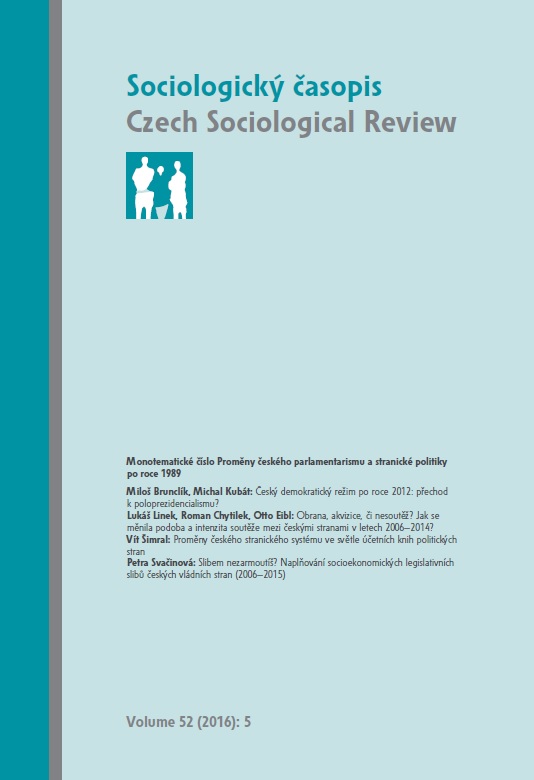Český demokratický režim po roce 2012: přechod k poloprezidencialismu?
The Czech Democratic Regime after 2012: A Transition to Semi-Presidentialism?
Author(s): Miloš Brunclík, Michal KubátSubject(s): Government/Political systems
Published by: AV ČR - Akademie věd České republiky - Sociologický ústav
Keywords: Czech Republic; democratic regime; semi-presidentialism; president
Summary/Abstract: Until 2012 the Czech Republic was almost unambiguously classified as a parliamentary regime. However, in 2012, the previous scholarly consensus concerning the classification of the Czech Republic dissolved, and ‘post-Duvergerian’ scholars now regard the Czech regime as semi-presidential. The article works with the original Duvergerian definition into which it introduces the new concept of semi-presidentialism, which is based on presidential powers. The article applies this new concept to the Czech regime for the period since the first directly elected president, Miloš Zeman, took office. Enjoying a legitimacy advantage, Zeman broke with the constitutional conventions that had hitherto been followed and appointed a cabinet headed by Jiří Rusnok without consulting with the parliamentary parties and in opposition to their original opinion. This attempt to change Czech parliamentary practice nevertheless failed: the Rusnok cabinet lost the vote of confidence in parliament and further attempts by Zeman to shift constitutional practice in favour of the Office of the President and to acquire greater influence over the Executive were unsuccessful. The Czech political regime should therefore still be classified as a parliamentary regime.
Journal: Sociologický časopis / Czech Sociological Review
- Issue Year: 52/2016
- Issue No: 05
- Page Range: 625-646
- Page Count: 22
- Language: Czech

